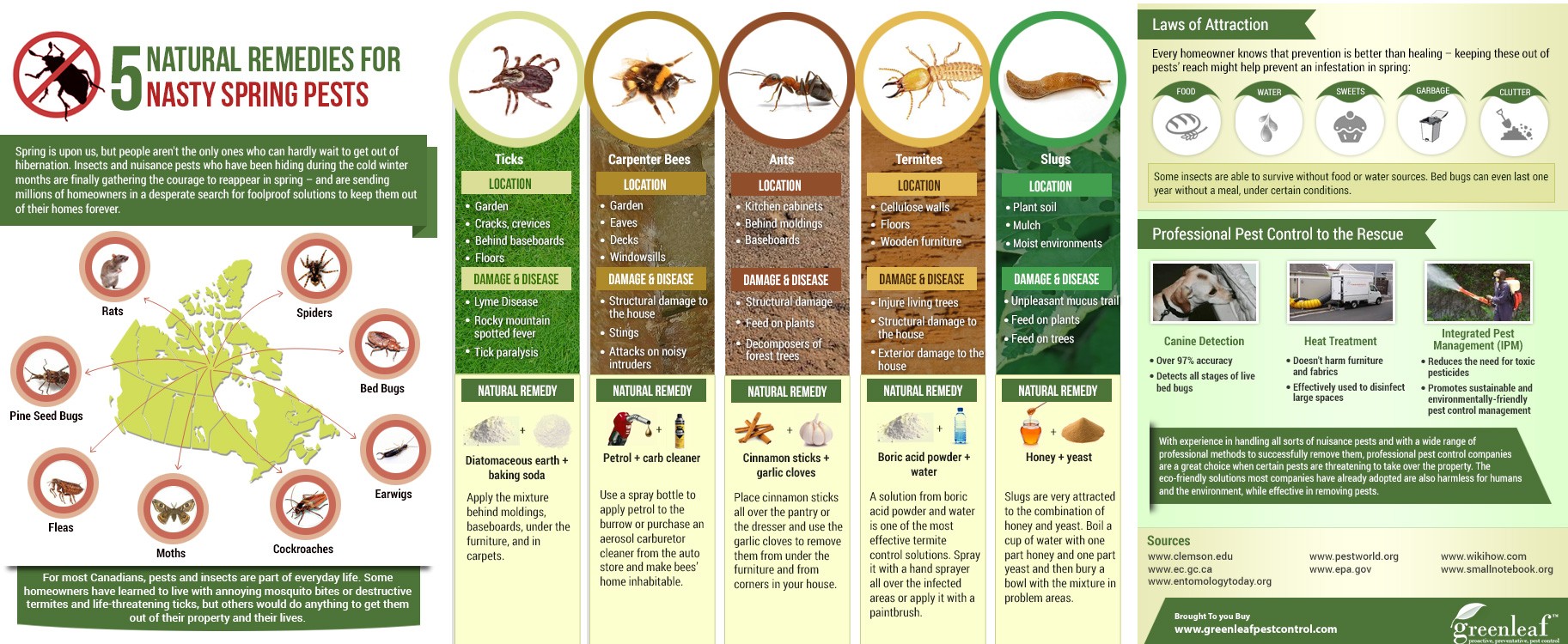Pest-Proofing Your Yard: Tips For Keeping Exterior Insects Away
Pest-Proofing Your Yard: Tips For Keeping Exterior Insects Away
Blog Article
Published By-Lambertsen Trujillo
Imagine your yard as a sanctuary, an area of peace and appeal. Nevertheless, visit the up coming article of outside parasites can promptly disrupt this picturesque picture. Suppose there were https://charliehcwql.myparisblog.com/27557622/open-your-eyes-to-the-urgent-need-for-efficient-bug-control-steps-when-confronted-with-a-sudden-invasion-and-find-exactly-how-to-tackle-this-pressing-concern-head-on yet reliable means to maintain these unwanted visitors at bay and shield your yard sanctuary? By adhering to a few sensible ideas and implementing natural methods, you can produce an unified outdoor area where your plants can prosper uninterrupted.
Natural Pest Deterrents
To keep pests away from your garden naturally, plant fragrant natural herbs like mint and lavender. These great smelling plants not just include elegance to your yard however additionally function as effective parasite deterrents. Bugs like insects, flies, and even some garden-damaging pests are repelled by the solid aromas given off by these herbs. Simply positioning them tactically around your garden can help create an all-natural barrier versus undesirable parasites.
Along with mint and lavender, think about planting various other natural herbs like rosemary, basil, and lemongrass to further boost your yard's pest-proofing capacities. These herbs not just work as all-natural repellents yet likewise have actually the included advantage of serving in cooking or crafting home made solutions.
Strategic Plant Positioning
Take into consideration the design of your garden and the kinds of plants you have to strategically put them for optimum pest-proofing effectiveness.
Start by organizing plants with similar resistance to bugs with each other. By doing this, you can develop an all-natural obstacle that deters parasites from spreading out throughout your yard.
In addition, positioning pest-repelling plants like marigolds, lavender, or mint near even more at risk plants can assist shield them. Tall plants, such as sunflowers or corn, can act as a guard for much shorter plants versus insects like bunnies or ground-dwelling pests.
Keep in mind to leave sufficient space in between plants to enhance air flow and decrease the threat of conditions that pests might lug.
Moreover, consider planting strong-smelling natural herbs like rosemary or basil near vulnerable plants to confuse pests' detects and make it harder for them to situate their targets.
Reliable Pest Control Methods
For combating garden pests successfully, implementing a multi-faceted bug control approach is important. Beginning by encouraging natural killers like birds, ladybugs, and hoping mantises to help maintain parasite populations in check. Introducing plants that draw in these beneficial pests can aid in pest control. Additionally, practicing great garden health by eliminating particles and weeds where insects could hide can make your yard much less friendly to unwanted site visitors.
Think about using physical barriers such as row cover textiles or netting to shield vulnerable plants from parasites like caterpillars and birds. Using organic chemicals like neem oil or insecticidal soap can also be effective against specific parasites while being less dangerous to helpful pests and the atmosphere. It's crucial to turn your crops each period to avoid the accumulation of insect populaces that target particular plants.
Regularly evaluate your plants for indications of insect damage so you can act immediately. By incorporating these techniques and remaining watchful, you can effectively manage garden insects and enjoy a growing, pest-free yard.
Verdict
So, there you have it - with the best approaches, you can maintain pesky outside pests far from your garden and help your plants flourish.
Did you understand that growing mint has been shown to repel insects and various other insects, minimizing the need for dangerous pesticides by as much as 60%?
By incorporating all-natural deterrents and wise growing techniques, you can produce an attractive and pest-resistant garden sanctuary for you to take pleasure in.
